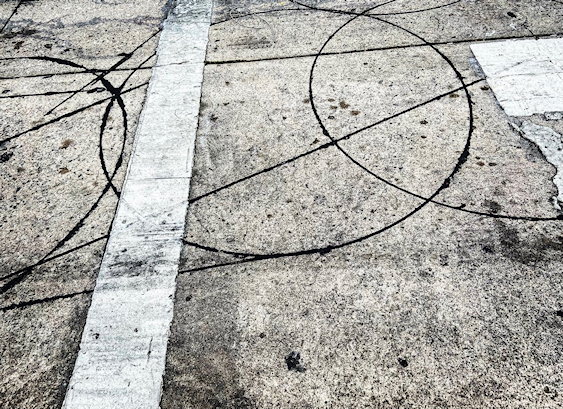Oftentimes, in an alcoholic or abusive family, there is one member who first acknowledges the problem, who remembers the painful and harmful acts of the past and the damage caused by those actions, who chooses to break the zones of silence the family enforces about their past, who points to the craziness and denial at the heart of the family system. One who breaks the taboo of silence.
But to the rest of the family, this breaker of the family system is the mad one, the difficult one, the one who refuses to just go along. And this, ironically, may be especially true if the one who breaches the zone of silence is the one who has been most abused.
Race in the family of America functions within a systemic denial of our mutual past, the injustices and damage done by racism, the harmful acts of individuals and institutions and groups. Those who were damaged most by racism remember that history and speak of it. Many whites who remain caught in this dysfunctional system still maintain their repression, their denial, in order to support a system they continue to benefit from.
There is what may be called black memory and white memory. The two are mutually intertwined and compete and conflict within the arena of the present. In the world of white memory, black memory does not exist, or it is a lie, a distortion. It breaks the rules of what is proper racial discourse. To speak of it is to play the so-called “race card.” Similarly, there is a Native American/indigenous memory and a (white) Settler memory. In the world of white memory, the Native American/indigenous memory does not exist—in part because white America no longer believes Native Americans exist—and yet, at the same time, America’s acts of genocide and land plunder must never ever be at the forefront of how America remembers its past.
In America, racism doesn’t distribute the painful memories of our racist past equally in the psyches of people of color and white people. No, it is people of color who carry and hold an unequal portion of these painful memories; in contrast white memory is designated as the realm of the ideal, a mythic and mainly blemish free version of our past where the racial scars and injustices are covered over by declamations of racial progress or relegated to the footnotes. As a result, people of color are constantly placed in a position of trying to hand white America their portion of this country’s painful past, the white psychic burden, in order to force white Americans to deal with their true legacy. But white America refuses to hold these memories, their past. You go on holding it, says white America to people of color. You keep carrying it. We had nothing to do with it. It was long ago.
What does it mean to serve as a psychic Sherpa? To carry the unpleasant emotions and memories of another? For one person or group to be weighed down by darkness, depression, anger, madness, so the other may be lighter, happier and seemingly sane?
Do people of color carry in our psyches the memories and burdens of our history so that whites can live in amnesia—without the burdens such memories entail?
How does all this affect the mental energies we must put out in order to function in our lives?
And when will white America take up and address their true and proper portion of our country’s difficult and painful past?
__
David Mura’s newest book is A Stranger’s Journey: Race, Identity & Narrative Craft in Writing. His next book is The Master’s House: The Stories Whiteness Tells Itself, which examines how the narratives white Americans tell themselves, whether in history, fiction or film, are based on ontological and epistemological structures whose roots go back to slavery. His two memoirs are Turning Japanese: Memoirs of a Sansei (a New York Times Notable Book of the Year and Oakland PEN Josephine Miles Book Award) and Where the Body Meets Memory: An Odyssey of Race, Sexuality, and Identity. He has written four books of poetry, The Last Incantations, Angels for the Burning, The Colors of Desire (Carl Sandburg Award), and After We Lost Our Way (National Poetry Contest winner), and a novel Famous Suicides of the Japanese Empire. (website: www.davidmura.com)


4 comments
Lesley Heiser says:
May 17, 2021
Love this. Grateful to have read these words by my esteemed teacher, David Mura.
fxposts says:
Jun 3, 2021
wow impress ,But to the rest of the family, this breaker of the family system is the mad one, the difficult one, the one who refuses to just go along. And this, ironically, may be especially true if the one who breaches the zone of silence is the one who has been most abused.
Chris says:
Jul 3, 2021
Love this. So timely and necessary.
Ray Rodriguez says:
Sep 12, 2021
So powerful and so real. Thank you.